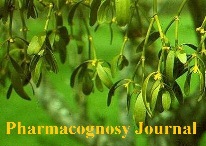Volume 2, Issue 9
Assessment of Antithyroperoxidase Antibodies and Thyroid Hormones Among Sudanese Pregnant Women
Author: Tarig M. S. Alnour1*, Husam M. Almahdi2, Ghada A. Elfadil3, Abdulgadir A. Almugadam4, Elhashimi E. Hassan5, Haala M. Gabra6
1. Assistant Professor of Microbiology and Clinical Immunology- Faculty of MLSc, Alzaeim Alazhari University
2. Department Clinical Chemistry, laboratory department, Saad abu-aleela University Hospital.
3. Clinical Chemistry, department of MLSc, Sudan University of Science and Technology.
4. Clinical Chemistry, department of MLSc, Sudan University of Science and Technology.
5. Clinical Chemistry department, Faculty of MLSc, Alzaeim Alazhari University.
6. Clinical Chemistry, laboratory department, Fedail Hospital.
Abstract: Objectives: This study aimed to assess the thyroid functions during pregnancy by measuring of Thyroid hormones and anti-thyroid peroxidase antibodies.
Materials and Methods: A Comparative cross sectional study included Two hundred (200) pregnant women and One hundred (100) healthy non pregnant women with a mean age (27.1±7.2) and (29.3±9.7), respectively. Blood samples were collected from different hospitals in Khartoum, to measure Anti thyroperoxidase Antibody (TPO), TSH, FT3, and FT4 by ELISA method.
Results: There were significant increase in the means of thyroperoxidase antibodies titer in pregnant women compared with control group (27.91±6.37 vs 26.30±4.76 IU/ml), P Value = (0.01). One pregnant women (0.5%) showed a positive antibodies titer to thyroperoxidase and four (2.0%) had equivocal titers. There were insignificant changes in the means of TSH, FT3 and FT4 between pregnant women and control group (P Value = 0.73, 0.18 and 0.44, respectively.
Conclusion: There were significant increases of TPO antibodies in pregnant women compared to controls; however there were insignificant change in thyroid hormones during pregnancy among Sudanese pregnant women. In respect to family history of thyroid diseases and abortion there were significant increase in the mean of TSH and significant decrease in the means of both FT3 and FT4.
Download Full Article: Click Here
Support Us
If you are interested in supporting our work and would like to contribute, you are welcome to mail me at jpbr.anil@gmail.com or at info@thepharmajournal.com it will be a great help and will surely be appreciated.

